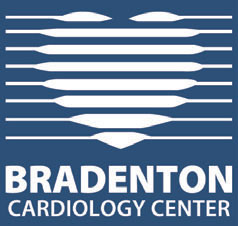-
-
Loading

Loading

Heart attacks have beginnings. The early signs of a possible heart attack can occur in about 50 percent of patients. * Some of these signs may occur hours or weeks before an actual heart attack. When symptoms begin, they can be mild or come and go. Over time, the symptoms and pain become more intense. It’s important to talk to your physician right away if you or a loved one experience any of the following early signs of a possible heart attack.
Additional signs of a possible heart attack may include:
Heart Attack Symptoms:
Men and women are different. Women may be less likely to seek immediate medical care. This
is dangerous, since most heart damage can occur within the first two hours of a heart attack. Other differences include:
If You Witness Sudden Cardiac Arrest:
In Caring for the Heart, Prevention Can Also Save a Life
Work in partnership with your physician to take action against risk factors that can be controlled:

Bradenton Cardiology Center provides comprehensive and advanced heart care options. To make an appointment or for more information, call 941.748.2277.
*Source: American College of Cardiology Foundation
For language assistance, disability accommodations and the non-discrimination notice, visit our website.
